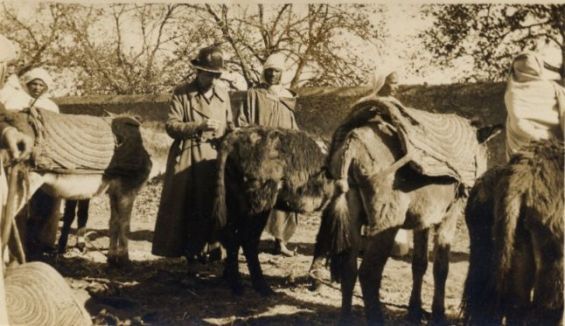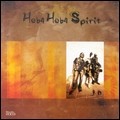In the Atlas Mountains mules and donkeys feed families through their labor. But with hard labor comes suffering. Something that two British women paid close attention to during a six-month holiday in North Africa.
We are talking about Kate Hosali and her daughter Nina. The two women abandoned everything to help working animals in Morocco, Algeria and Tunisia.
Their story started in the winter of 1921, when 44-year-old Kate and her 23-year-old daughter Nina headed to North Africa for a hot vacation. Kate used to work in Glasgow (Scotland) as a secretary to a mathematician and research physicist while her only daughter was studying science and mathematics at University College.
A sea of animal suffering
Once in North Africa, the two women discovered an ugly truth. «We realized that behind the façade of picturesque beauty there existed a vast sea of animal suffering», said Nina Hosali when speaking about her experience in the region.

Back to England, the mother and daughter decided to do something concrete about injured and maltreated animals they saw during their stay in North Africa. In 1923, they founded the Society for the Protection of Animals in North Africa (SPANA). Nina stayed in London to generate funds while Kate headed back to Africa to start her humane mission.
According to Sue Young Histories, a platform that has a large collection of biographies of homeopaths, Kate «went out alone that year (1923) and began work in Algeria – in the medinas, souks and fondouks – treating wounded and bleeding backs, saddle sores and other injuries».
Quickly, Kate gained notoriety and respect in the country and locals started calling her the «Al Toubiba» (the doctor). The woman’s adventure was not limited to Algeria, as she moved to Morocco to carry out her work.
World War II and animals in North Africa
Based on the account provided by the foundation’s website, Kate Hosali «started working in Morocco in 1925». With Fondouks for working animals in the Kingdom, Algeria and Tunisia, Kate and Nina managed to achieve their dream.

However, in the middle of World War II their project was threatened by the global context. In 1940 «animals of all ages were being pressed into service, even the old, sick and ill», recalled Sue Young Histories.
As Morocco alongside Tunisia and Algeria fell for the Vichy authorities, SPANA found difficulties sending and receiving letters from London. Things worsened when «the British Government applied restrictions on the export of sterling, and the ability of SPANA in London to raise funds (became hard) at a time when everyone was having to endure severe deprivations», added the same source.

In North Africa, SPANA’s staff had to sell equipment and furnishings to heal animals as aids sent by Nina Hosali shrunk by 1942. Two years later, Kate, aged 67, died in Marrakech of a heart stroke.
SPANA overcame all difficulties, becoming one of the most important animal associations in the region. Kate and Nina's project now has five centers in Morocco, including Casablanca, Chemaia, Had Ouled Frej, Khemisset and Marrakech.
It also has amobile veterinary clinic reaching animals in remote communities. Since its establishment in the kingdom, SPANA, and thanks to Kate and Nina, provided more than 60,000 treatments to working animals across the country.




 chargement...
chargement...











